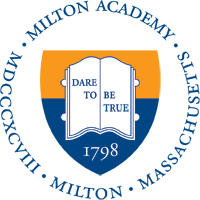
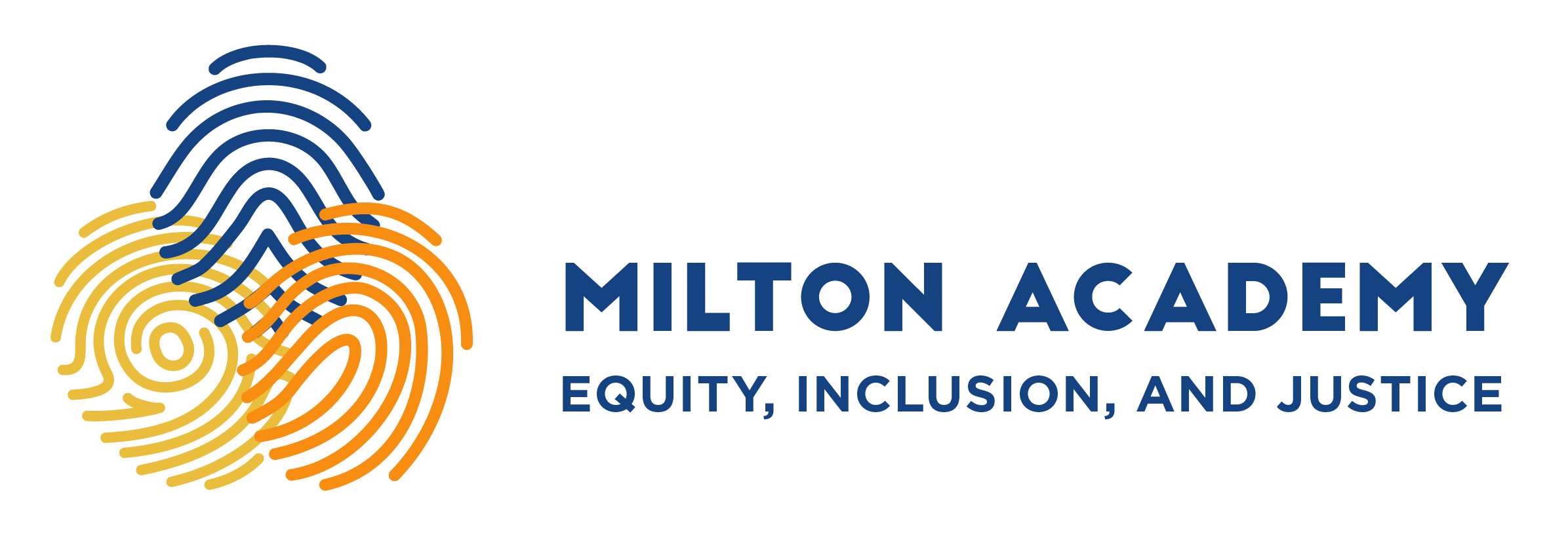
Community in Action – Upper School
The Upper School DEIJ Office at Milton Academy seeks to develop, implement, and manage programs and initiatives with the goal of fostering a sense of connection and belonging for students. Our team strives to facilitate support for students, parents, and Upper School employees.
Featured Initiatives
[hidden]
Promotes Asian, Asian-American, and Pacific Island cultures through weekly meetings and activities. In addition to their regular meetings, the Asian Society supports production of the Loose Leaf student publication and engages in Boston’s Chinatown on a regular basis, tutoring and providing English support.
Faculty advisors: Nicole Darling and Vivian Wu Wong
New Student Orientation Program
All students should be seen and embraced for the many parts of themselves and the range of identities they hold, and to feel they are an integral part of the culture of our school. To accomplish this goal, we believe that members of our community must be engaged in exploration, conversation, and learning about issues of identity, culture, and injustice. Through understanding ourselves, validating and engaging with others, and working together to learn and offer perspectives, we increase the appreciation for the unique community we have.
Before the arrival of returning students, all new Upper School students spend time together on campus. New Student Orientation is a space where students learn what the expectations of the Milton community are, and what it means to contribute to Milton’s commitment to inclusion and equity. This programming encourages connections and community across identities; provides all new students with resources, guidance, and support as they explore their identities; and begins to offer tools and practices to support healthy cross-cultural interactions.
Transition Program
Milton’s Transition Program is almost four decades old, and serves as an optional orientation experience for new students of color and international students in addition to the New Student Orientation Program. This program seeks to help students develop a sense of belonging at Milton; foster a community of inclusivity, openness, growth, respect, and understanding; and recognize and celebrate a range of identities. At Transitions, students of color and international students work with faculty, engage in discussions about identity, and participate in activities both on and off campus.
All School Programming
Throughout the academic year, Milton holds weekly all-school programming time. These community common times range from conversations in advisory, visits by outside speakers, to special events and assemblies hosted by student groups and the Department of Equity, Inclusion, and Justice. These blocks of time are designed to educate the community on issues of interest and concern and often focus on fostering mutual respect and personal responsibility.
Student Publications
Azaad
Multicultural literary and art magazine published each semester that serves as a platform to discuss diverse community narratives surrounding race, class, sexuality, gender, religion, and ability.
The F-Word
A biannual journal aiming to initiate dialogue around gender equality and feminism through an intersectional lens.
La Voz
Milton’s Spanish-language student online newspaper. Featuring monthly updates, La Voz gives Spanish language students at Level III or higher the opportunity to contribute in Spanish on topics at Milton, in the United States or abroad, or more broadly concerning the Spanish-speaking community.
Loose Leaf
Biannual magazine covering Pan-Asian issues, both abroad and in the United States. Students are encouraged to contribute to express their personal experiences and their political and creative opinions on Asian and Asian-American issues and culture.
Host Family Program
The Host Family Program is designed to support new boarding students as they become comfortable in their “home away from home.” During their transition to boarding life, students may experience loneliness or miss the haven of a family home away from the busyness of campus life. The host family, most often a family of a day student or nearby boarding student, helps make that transition easier. The program is flexible, based on a student’s need for support and what a particular host family is able to provide.
Deep Dive Opportunities for Social Justice Engagement
Students interested in more fully exploring issues of identity and social justice may apply for funding to participate in various student conferences, including the National Association of Independent Schools’ Student Diversity Leadership Conference, the Association of Independent Schools of New England’s Students of Color Conference, and the City School Advanced Social Justice Leadership Institute. Through intensive discussion and multi-day experiences, students develop skills in advocacy and learn how to strengthen equity and inclusion work on campus.
DEIJ Student Leadership Opportunities
The Department of Equity, Inclusion, and Justice is an office that values the input of student voice. The DEIJ Sounding Board was created as an effort to create leadership opportunities for students, empowering them to engage deeply in the work of galvanizing student programming and creating initiatives in all branches of community life to make a difference in the student experience at Milton.
Teaching and Learning
The DEIJ office supports all employees through their growth in equity, inclusion, and justice. Through speaker series, professional learning days, workshops, and one-on-one support, Milton employees learn and grow together. All employees of Milton attend a multi-day program with VISIONS, Inc., a nonprofit organization specializing in diversity and inclusion training and consulting, and regularly participate in in-house training during meetings and professional development days. Frequently attended conferences by Milton employees include The NAIS People of Color Conference, Diversity Directions Independent School Seminar, TABS, The White Privilege Conference, Asian-American Footsteps Conference, and The Stanley H. King Institute.

Identity and Affinity Programming
The Upper School offers a host of affinity spaces and cultural groups for students across a wide range of identities including gender, ability, sexual orientation, ethnicity, nationality, and race. Student leaders work with adults to create spaces that are affirming for identity development and supportive of cross-cultural interactions. These spaces exist for groups of people who are drawn together because of a specific shared identity with the intention of finding connection, support, and inspiration. Affinity spaces are distinct from Milton Academy’s cultural groups.
Cultural groups share some similarities in that they are formed around identity categories, and have student leaders and adult sponsors, but are different in that they are open to any member of the student community whether or not they identify with the identity being explored by the group. Cultural groups provide the wider community with opportunities to learn about, support, and celebrate the unique qualities of an identity.
Culture Clubs
(click titles to view descriptions)
[hidden]
Faculty advisors: Nicole Darling and Vivian Wu Wong
Asian Society
Faculty advisors: Nicole Darling and Vivian Wu Wong
Caribbean Student Association
Faculty advisor: Chris Lewis
Christian Fellowship
Faculty advisor: Akin Adeboye
GASP! (Gender and Sexuality Perspectives)
Faculty advisor: Hubert Hwang
International Student Association
Faculty advisor: Tasha Otenti
Jewish Student Union
Faculty advisors: Josh Furst
Latinx Association
Faculty advisors: Melissa Figueroa and Jenny Romero
Multi
Faculty advisor: Matt Blanton
Muslim Student Association
Faculty advisor: Terri James Solomon
Onyx
Faculty advisor: Chris Lewis
SAGE (Students Advocating for Gender Equity)
SAMENA (South Asian, Middle Eastern (West Asian), and North African students)
SAMENA values the intersections between South Asian, Middle Eastern, and North African cultures, and serves as a place to unite over similarities, learn from differences, and celebrate each other.
Tang
The Tang Club promotes diverse Chinese cultures through weekly meetings and activities. It encourages students to share their local cultures with each other and with the broader community.
Faculty advisor: Mulian Chen
Affinity Spaces
(click titles to view descriptions)
[hidden]
Faculty advisors: Nicole Darling and Vivian Wu Wong
Advocates for Diverse Abilities
Affinity group for students with learning disabilities and differences to share experiences and strategies of working to thrive.
African Student Association
Asian Affinity
LGBTQ+ Affinity
ISC Affinity
Brother/NB Bonding
An affinity group to support the social and personal development of Black and Latinx male/non-binary students. Biweekly meetings provide an informal, relaxed space for students to talk openly, with each other and with an adult advisor, about the experiences and challenges of being a Black or Latinx student at Milton.
Brother/NB Bonding advisor: Josh Jordan
Jaded Matrix
Tang
The Tang Affinity provides a space for students who have spent significant years growing up and attending schools in mainland China, Hong Kong, Macau, and Taiwan. It strives to create a sense of belonging for its members and is a home away from home.
Tang advisor: Mulian Chen
Meet the Team

Melissa Lawlor
Director of Equity and Inclusion
Melissa leads the Upper School team’s justice, equity, and inclusion efforts. An independent school veteran with over 15 years of experience, Melissa arrived at Milton from Brewster Academy in Wolfeboro, NH. At Brewster, Melissa served as the director of equity and inclusion, where she also directed the upper school Social Emotional Learning program, was the faculty advisor of the BIPOC Student Union and the Trey Whitfield School Mentoring Program, and the head coach of the Girls Varsity Lacrosse team. She is the co-founder of the Network for Independent School Equity (NISE), an affinity focused group in Northern New England for faculty who identify as BIPOC and/or LGBTQ+. During the summer, she is the lead faculty for the Association for Independent Schools in New England’s Leadership and Racial Justice Fellows Program. A Northern California native and former 3-sport college athlete, Melissa is currently working toward her doctorate in Educational Leadership at Boston College.
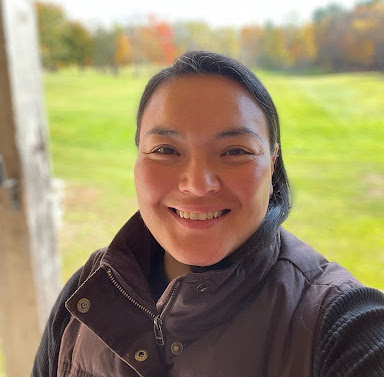
Tasha Otenti
Director of International Student Services
Tasha is the Director of International Student Services. In addition to providing structured support for international students and their families, Tasha serves as faculty advisor to International Students Club and Affinity. Tasha loves supporting international students and helping them root down as they make Milton home. She enjoys the community created in international student spaces—eating (a lot), laughing, and talking—whether in club or affinity or on a long weekend trip or retreat. Frequent topics include managing homesickness, culture shock, and language differences; what it means to find one’s stride in discussion-based classes; and what it means to honor one’s heritage while studying in the United States. Tasha enjoys exploring the relationship between food and the soul, especially when it comes to eating kimchi and Korean cuisine. She also loves practicing Bikram hot yoga.
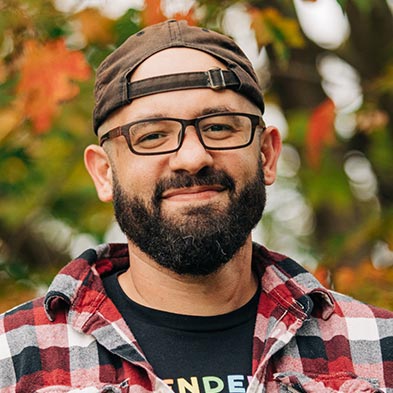
Yann Kumin
DEIJ Community Coordinator
Yann is originally from the Boston area but grew up splitting time between Boston city and locations all over the world. After graduating from Northfield Mount Hermon in Gill, Massachusetts, Yann received his B.A. in History from Harvard University in 2004 and then headed down to New Orleans, Louisiana, to teach and coach at Edna Karr Secondary School. Following Hurricane Katrina and his return to Boston, Yann spent 14 years in the classroom as a high school English teacher and curricular team leader in Cambridge, Massachusetts, while also serving as an assistant football coach for various different programs before becoming the head football coach at Belmont High School. Yann left teaching in 2018, becoming president of operations for I2SM Universal, an athletic training and rehabilitation organization while also taking ownership and operating their Boston location. Simultaneously, Yann began working as an independent consultant in the DEIJ field, providing seminar opportunities to educators and coaches in the spirit of creating more open, accessible, and equitable educational and athletic experiences. A successful cancer fight in 2019 revealed even more about the importance of authentic life and being true to self in the time that we have, and helped Yann realize that working full time in the advancement of equity and justice was where he was meant to be—a realization that now brings him to Milton Academy’s DEIJ Team.
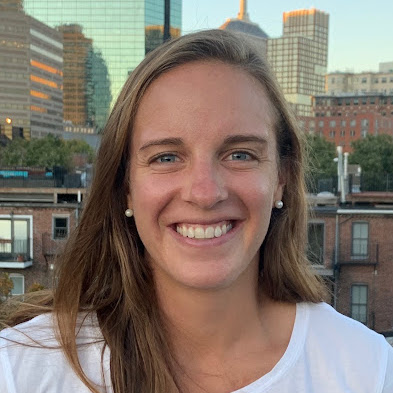
Molly Swain
Team Member
Molly is in her eighth year as a faculty member at Milton. Through her many roles as the director of professional learning, a visual arts teaching faculty, a coach, a faculty council member, and a class dean, Molly works with the DEIJ team in a variety of ways. As a member of the DEIJ, Molly brings particular focus to the education of whiteness, white privilege, and white supremacy culture. Molly’s work permeates through athletics, admissions, class deans programming, and faculty development. Molly is from the Boston area, growing up in Cambridge, MA and now she lives in downtown Boston. Molly holds a Masters in Teaching and a BFA in Painting from Boston University and a Masters of Education from the Teachers College in Independent School Leadership.
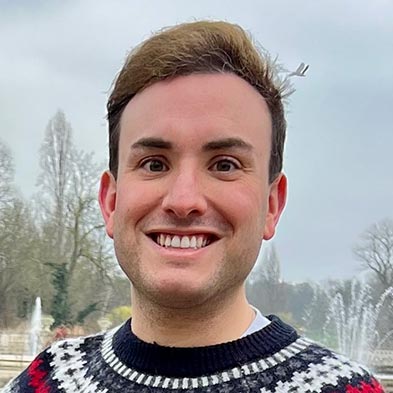
Josh Quiñones
Team Member
Josh is honored to call Milton Academy (and, particularly, Goodwin House) home. A graduate of St. Mark’s School in Southborough, Josh values the community magic that students, faculty, and staff cultivate on hybrid boarding/day campuses. Josh graduated from UNC-Chapel Hill in 2012 and moved to Columbus, Ohio, where he volunteered as a crisis counselor for The Trevor Project, a non-profit suicide-prevention organization that provides support for LGBTQ+ youth. This work led to his pursuing a Master of Arts in Teaching from Brown University (2017) and an MA in English from Middlebury College (2022) to transition into the classroom as a full-time teacher. Josh previously taught at the Wheeler School and Cushing Academy before joining Milton’s English Department in 2020. In addition to his work with the DEIJ, Josh teaches English in the Upper School, lives and advises in Goodwin House, facilitates LGBTQ+ student affinity, and serves on the leadership team of AWARE (Alliance of White Antiracist Employees). A proud member of the Boston Gay Men’s Chorus, Josh is a supporter of the performing arts and can be found often at the theatre in his spare time.
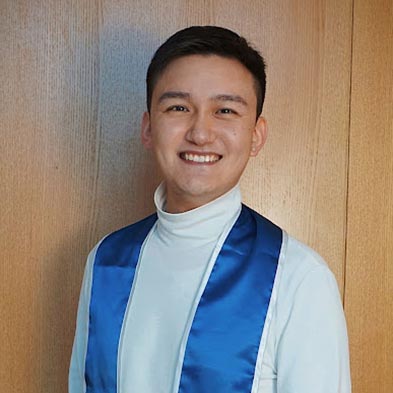
Hans Zhou
Team Member
Born and raised in Hangzhou, China, Hans came to the United States as an international boarding student at St. Mark’s School in Southborough, Massachusetts. Hans received his B.A. in Classics and Environmental Analysis from Pomona College in 2020. During college, Hans was twice elected to the student senate and was involved in multiple initiatives to strengthen support for mental health, disability, survivor, etc. He also served as a Head Mentor for the International Student Mentor Program, providing support to the entire international student community at Pomona. Hans has been working for the NAIS Student Diversity Leadership Conference (SDLC) as a faculty facilitator since 2017, where he continuously witnessed the potential to empower students to make meaningful changes within independent schools. Hans joined Milton Academy in 2022 as a Penn Fellow teaching Latin in the Classics Department while working towards a Master’s degree in Education from University of Pennsylvania.
Community Profiles
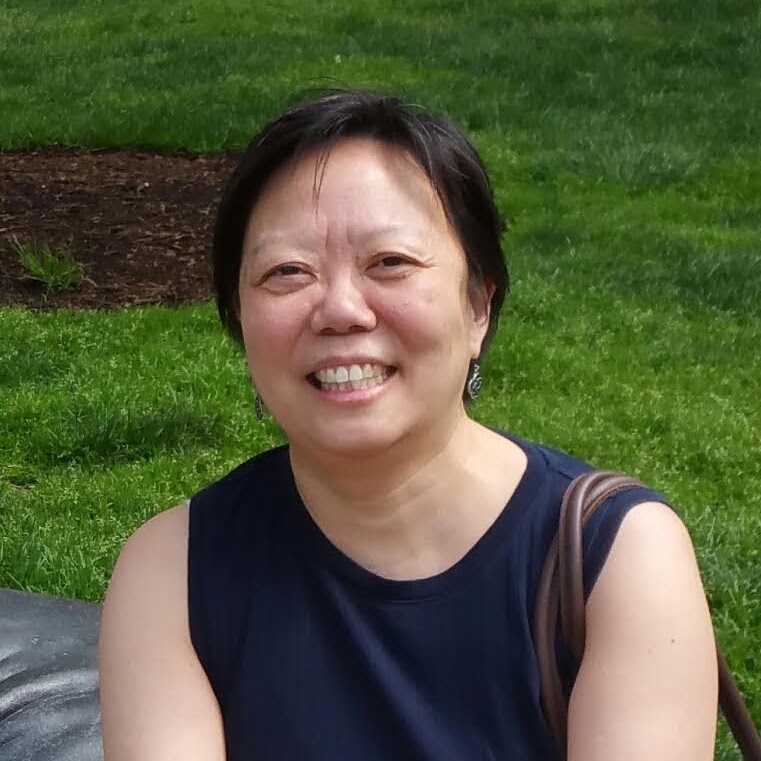
Vivian WuWong
History Department, Asian Society and Asian Affinity Faculty Advisor
How did you get involved with Asian Society as a faculty advisor?
In the late 1980’s, there were no Asian American teachers at Milton. To diversify the faculty and address the needs of Milton’s Asian international and Asian American students, Ed Fredie, Milton’s first African American Head of School, had Christine Savini, Milton’s first Director of Diversity, recruit Asian American faculty. Christine found me teaching Asian American studies courses at UMass/Boston and encouraged me to apply to the History and Social Sciences Dept in and was hired in 1992. I specifically came to Milton to develop support services for Asian international and Asian American students (who comprised about 8% of the Upper School student population), advise Asian Society and the Asian Paper, and educate faculty on the needs of these students, and these are the things that drew me to Milton.
What is your favorite part of that job?
I was planning to stay for only a few years to build up the capacity of Asian Society, but I really enjoyed working with Milton students and faculty, so I stayed to create more programming for Asian Society and teach a variety of history courses including an Asian American history course, and ultimately got involved in numerous faculty committees to help shape the future of our school. My favorite part of working at Milton is seeing how far students of Asian descent have come. When I started, Asian international and Asian American students were pretty isolated, felt ambivalent about their Milton experience, and were less involved in activities outside of the classroom. It took about 10 years to help students feel more comfortable and integrated. Now students are doing everything– writing for our newspapers and magazines, running our student government, playing on every team and performing in every play, leading lots of different clubs, and the list goes on. It’s great to see Asian American and Asian international students so engaged in every aspect of their Milton experience because this wasn’t the case 30 years ago.
Could you highlight a meaningful experience or moment that came out of mentoring affinity space?
At one point, we had tried to add students of Asian descent to Brother & Sister Bonding, but the group got too large, so we created our own Asian Affinity. The best part of Asian Affinity is seeing students connect and laugh with one another. Seeing students make the space and time their own to get what they need from one another is heartwarming.
What is something you appreciate about the affinity and culture clubs on campus?
At some schools, culture clubs and affinity spaces, if they exist, are peripheral to the student experience. At Milton, Asian Society has become tremendously important for many of our students. It’s the place they feel most comfortable and safe. No one is judging them or questioning their place on campus. In the end, no one can survive Milton on their own, so it’s crucial to have these kinds of spaces for students who can support and rely on one another as they figure out who they are and what they want out of their Milton experience.

Chris Lewis
MA ‘12, Associate Director of Admissions, Onyx and Caribbean Student Association Advisor
How did you get involved with Onyx as a faculty advisor?
I was a member of Onyx during my time as a student so I always felt a very close connection to the group. Once I returned to Milton as an employee, I knew I wanted to find more formal ways to both support black students, and promote black culture and blackness to the wider Milton community.
What is your favorite part of that job?
My favorite part of the job is definitely interacting with and learning from the student members of Onyx. I am always so impressed with how thoughtful, passionate, dedicated, and warm they are – It’s inspiring.
Could you highlight a meaningful experience or moment that came out of mentoring the club?
One moment that sticks out to me was the first meeting of the year. I remember frantically running back and forth between Wigg classrooms and the history faculty lounge with chairs in my hands because we didn’t have enough for all the students who showed up! There were upwards of 40 students gathered hoping to learn what “Onyx” was, and I remember being so impressed with the co-heads as they welcomed all these students into the group.
What is something you appreciate about the affinity and culture clubs on campus?
I appreciate the intentional ways these groups create community. It shows me Milton is not only identifying the needs of the students, but also prioritizing the lived student experience. It’s reassuring to know that a student can both find affinity based on their identities, and also learn more about the diverse cultures around them within the community.
